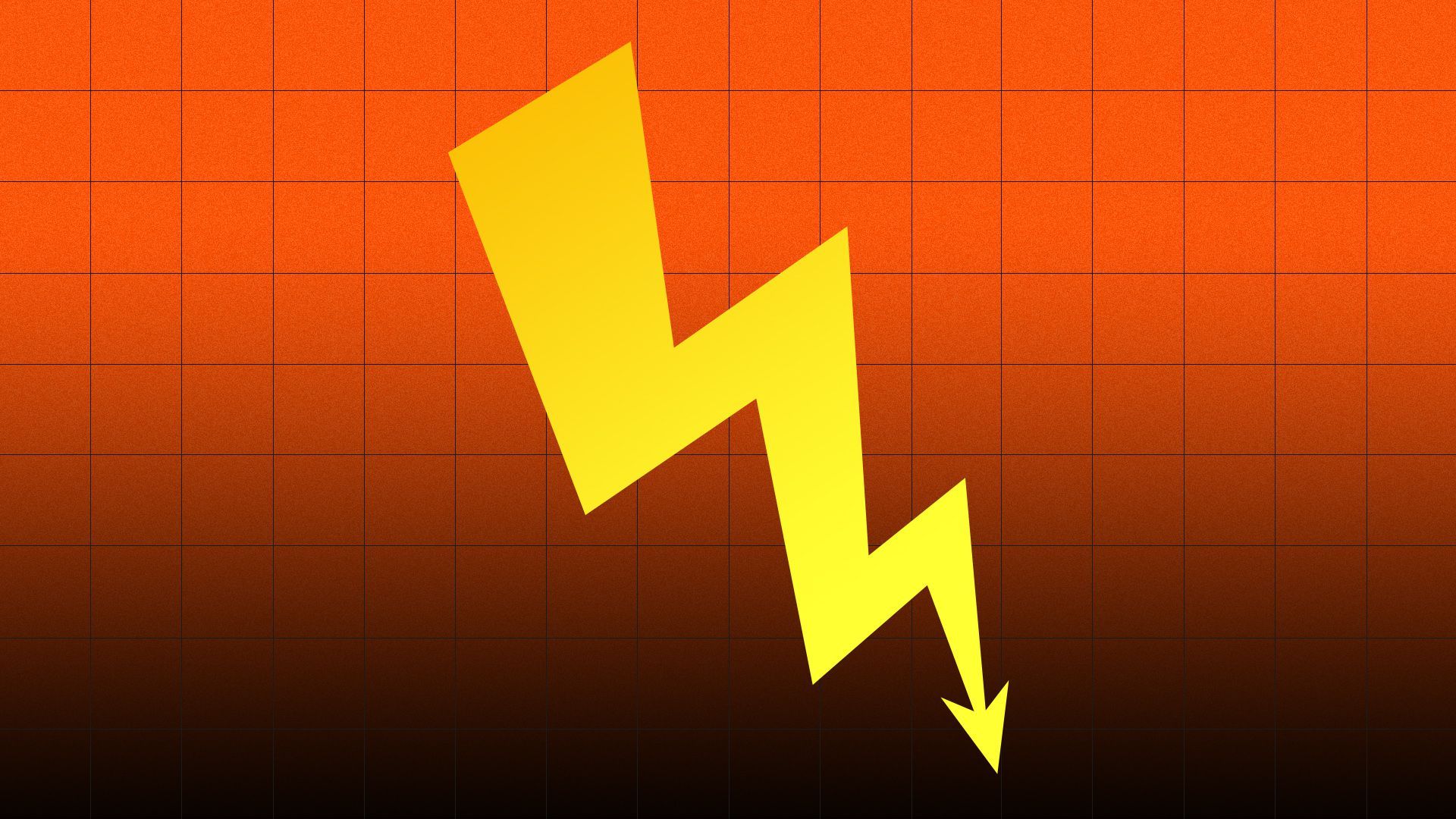Global energy crisis could dim climate hopes
Add Axios as your preferred source to
see more of our stories on Google.

Illustration: Annelise Capossela/Axios
An energy crisis around the world is hitting households and manufacturers that were already struggling to recover from the global pandemic.
Why it matters: This is a perfect storm of crises. It features supply shortages, especially from China; inflation; slowing growth; labor shortages; Russia’s continued geopolitical muscle-flexing and, of course, the fear that the world will burn to a crisp.
Driving the news: A combination of weather-related issues (many of which are related to climate change), unexpected demand and planned outages has sent natural gas and coal prices through the roof.
- China's energy shortage has already caused high-tech manufacturing centers to close their doors.
- India is in even worse shape, with much less ability to bring new power sources online.
- In the U.K., the surge in natural gas prices saw many companies go bust, while the EU has been reminded of how uncomfortably reliant it is on Vladimir Putin's Russia for its energy needs.
The big picture: Inflation is bad, but energy-price inflation is terrible. It hurts the poorest the most and scares up memories of 1970s-style stagflation, where rising prices are combined with anemic growth.
- The global energy transition to renewables is well under way, but hasn't come soon enough.
- "Pressures on the energy system are not going to relent in the coming decades," writes the International Energy Agency in its latest World Energy Outlook, released on Wednesday.
By the numbers: Around the world, the demand for coal is far outstripping supply. The price of coal on the Nymex exchange in New York reached $274 per tonne on Oct. 5. A year ago, it was $57.
- European natural gas prices rose by roughly 500% between early May and early October before easing slightly.
What's next: The U.N. Climate Summit in Glasgow begins on Oct. 31.
- This crisis is likely to make China and India more reluctant to commit to phasing out coal-fired power plants in the near-term. The current crisis demonstrates that they need all the energy they can get, whatever the source.
The bottom line: The world is reliant on fossil fuels for much-needed growth. The problems with that aren’t just intergenerational. They’re right here, right now.

